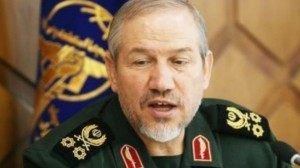 TEHRAN (Tasnim) Ė Washingtonís schemes to form a new Middle East have ended in failure, a senior military adviser to Supreme Leader stressed, and added that nations in southwest Asia are moving towards independence following the wave of Islamic Awakening that has traversed the region.
TEHRAN (Tasnim) Ė Washingtonís schemes to form a new Middle East have ended in failure, a senior military adviser to Supreme Leader stressed, and added that nations in southwest Asia are moving towards independence following the wave of Islamic Awakening that has traversed the region.ďThe US strategy in southwestern Asia to form a new Middle East has ended in failure,Ē Brigadier General Seyed Yahya Rahim Safavi†said in a conference on geopolitics of southwest Asia.
He also noted that thanks to the Islamic Awakening movement in recent years, the nations in southwest Asia are moving towards independence and replacing the despotic, hereditary and foreign-backed †political systems with democratic ones that are deeply rooted in the Islamic culture and traditions.
The term ďNew Middle Eastí was introduced to the world in June 2006 by then US Secretary of State Condoleezza Rice to replace the older and more imposing term, the ďGreater Middle East.Ē
This announcement was a confirmation of an Anglo-American-Israeli ďmilitary roadmapĒ in the Middle East. This project, which has been in the planning stages for several years, consists of creating an arc of instability, chaos, and violence extending from Lebanon, Palestine, and Syria to Iraq, the Persian Gulf, Iran, and the borders of Afghanistan.
Brigadier General Rahim Safavi further pointed to the concept of human-oriented geopolitics, and described the issue as the use of politics, power and geography to serve the interests of humanity on the basis of peace, security and justice.
He went on to say that human-oriented geopolitics pursues an environment void of weapons of mass destruction, and entails elimination of all nuclear stockpiles in southwest Asia, particularly those in possession of the Zionist regime of Israel.
Israel has never confirmed or denied possession of nuclear weapons, most experts estimate that Israel has between 100 and 200 nuclear warheads, largely based on information leaked to the Sunday Times newspaper in the 1980s by Mordechai Vanunu, a former worker at the country's Dimona nuclear reactor.
And former Israeli Prime Minister Ehud Olmert alluded to Israel's nuclear weapons arsenal in comments in December 2006, a week after then US Defence Secretary Robert Gates used a similar form of words during a Senate hearing.
In May 2008, ex-US President Jimmy Carter said Israel had at least 150 atomic weapons in its arsenal. The Israelis have never confirmed they have nuclear weapons.
By Tasnim News Agency
The Iran Project is not responsible for the content of quoted articles.










